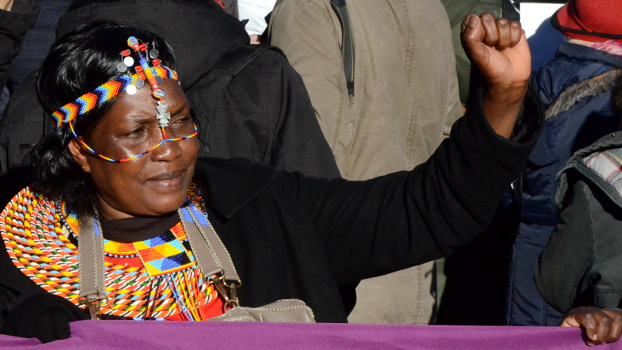
On 10 December, the world celebrated the 70th anniversary of the Universal Declaration of Human Rights, yet at the UN climate conference, human rights have become a bargaining chip.
The Paris climate agreement needs a rulebook that defines the concrete implementation of the acclaimed historic agreement. This could easily be construed as merely technical discussions. In reality, however, the UN climate negotiations on this rulebook, which are currently taking place in Katowice, Poland, are highly political.
Further texts, interviews and publications on climate justice
Dossier on COP24
The first week of negotiations have now been completed and they once again disprove the myth that the mere existence of the Paris climate agreement should be considered a success. So far the agreement has focused on often contradictory points and provides humanity with a very rough framework for dealing with the climate crisis. These negotiations will determine what measures are eventually implemented, and discussions inherently revolve around reaching compromise. Last week we witnessed exactly what kind of compromises governments are willing to accept. In this climate diplomacy ‘bazaar’, even human rights are being put at stake, with states using them as a sort of bargaining chip for their national interests – speaking the language of fossil lobbies, competition and profit – and all at the expense of the world’s poorest and most marginalised. In other words, on the 70th anniversary of the Universal Declaration of Human Rights, human rights have become negotiable.
Human rights as a bargaining chip
One notable success of the Paris Agreement is that it enshrines eight rights in its preamble: alongside human rights, these are food security, the rights of indigenous peoples, gender equality, public participation, intergenerational equity, ecosystem integrity and a just transition. In the efforts to ward off climate change and in measures to adapt to the consequences of the climate crisis, the agreement is therefore committed to taking into account these rights.
Nearly a quarter of a century of climate negotiations offer proof of the need to guarantee both comprehensively. The profound impacts of droughts, typhoons, melting glaciers and dying coral reefs on the lives of people are becoming ever more palpable, as is the threat they pose to these very fundamental rights. However, it is also becoming increasingly evident just how much measures set out as climate protection instruments in the context of the UN framework convention on climate change actually violate human rights. Indigenous peoples are being driven out of forests that have been sold as carbon sinks (as part of the REDD+ programme), or people are being resettled to make way for a hydropower station including a mega-dam to produce renewable energy.
The fact remains that unless these rights are made fundamental to the rulebook, it risks becoming a paper tiger. These rights need to be enshrined in the actual implementation rules and guide all instruments, mechanisms and measures. This is the only way to ensure their impact right up to the national level and that affected people are given an opportunity to take legal action to protect their rights. However, during the past week, these rules – depending on the dynamics of negotiations – were sometimes included within the text of the rulebook, and sometimes not. This give-and-take logic could become even more pronounced during the second week of negotiations when ministers arrive to continue negotiating the texts prepared by their delegations. Many options remain uncertain and are pending negotiation.
Equally, and very fundamentally, the rights of the poorest and weakest are at stake because the industrialised nations, in spite of their clear historic responsibility for climate change, still do not want to provide sufficient funds. However, such financial commitments are a necessity to support the Global South with climate protection and adaptation measures and to compensate for the loss and damage the global climate crisis has already caused. Ultimately, this too is about guaranteeing human rights; without the corresponding means, however, this often remains nothing more than an empty promise. Beyond the wholly insufficient commitments to cut emissions, this is the second great lacuna that opens up between the rhetoric and actions of industrialised nations.